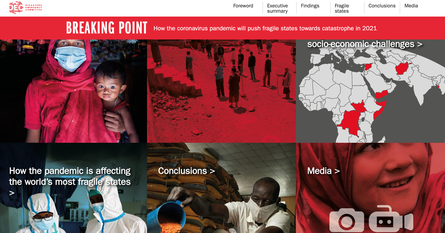
As the UK deals with a new strain of Covid-19 and attention here is rightly focused on the domestic disaster, we must not forget the world’s most fragile states where the pandemic is magnifying existing health and socio-economic challenges with devastating effects.
These places, beset by years of conflict, violence and natural disasters such as drought and flooding, have left millions of displaced and other vulnerable people with poor access to adequate healthcare, water, food and ways to earn an income.
The Disasters Emergency Committee (DEC), which brings together 14 leading UK aid charities to raise funds for countries without the capacity to respond in the face of a large-scale humanitarian disaster, launched its Coronavirus Appeal in July 2020 when it became clear that Covid-19 was going to be devastating for the world’s poorest communities.
This report examines the impact of Covid-19 so far and what the year ahead holds for the world’s most fragile states – Yemen and Syria in the Middle East; Somalia, South Sudan and the Democratic Republic of Congo (DRC) in Africa; Afghanistan in Asia – and the Rohingya refugee camps in Bangladesh.
Evidence comes from DEC-commissioned independent Response Reviews in these seven places, interviews with country directors and senior staff from the 14 DEC charities as well as UN representatives in these fragile states, and a survey of senior staff at DEC charities on the ground and their local partners.
The central findings of the survey are alarming. Almost all (98%) agreed that the pandemic had worsened the humanitarian crisis in their respective countries, with three quarters (73%) saying it is the worst it has been in the last 10 years.